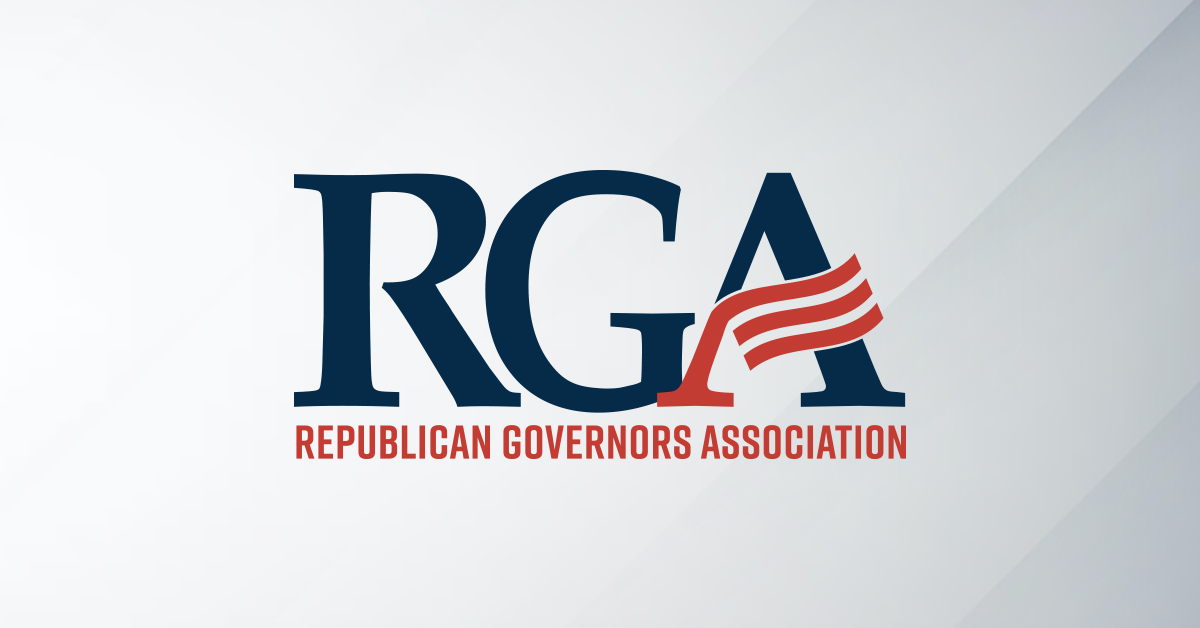
WASHINGTON, D.C. – Twelve Republican governors released statements today voicing their opposition to the Environmental Protection Agency (EPA) proposal to redefine the “waters of the Unites States” in the Clean Water Act. The governors’ comments shed light on serious concerns relating to EPA’s attempt to vastly expand federal jurisdiction over the nation’s waters and wetlands, including adverse impacts to state economies; confusion over the proposal’s application; and federal encroachment on state decision-making. The governors’ remarks also reveal that state leaders are voluntarily engaging in successful efforts to safeguard their water resources and improve water quality.
Alabama, Governor Robert Bentley:
“The proposed rule will hurt the Alabama economy and, as Governor of Alabama, I will continue to fight the U.S. EPA and the U.S. Army Corps of Engineers from harming Alabama families and businesses. The proposed rule is a federal encroachment on states’ rights, forcing us to comply with Washington mandates that surpass federal powers. At its core, the proposed rule lacks an adequate basis in science as well as sufficient state input. In a rush to promulgate the proposed rule, the EPA and Corps made at least two significant errors, first failing to consult with states on the need for the rule and its potential ramifications, and secondly failing to obtain and incorporate necessary scientific research into the rule’s development. As a result of this fundamentally flawed process, the agencies have proposed a fundamentally flawed rule. This rule far exceeds the limitations on federal regulatory authority set forth in the Clean Water Act and threatens large-scale economic harm. Specifically, the rule will impose large costs on many Alabama industries — especially the agricultural, building, and mining sectors. These three industries account for many of the jobs lost in Alabama over the past five years and further cuts will jeopardize Alabama’s recovery. Even if the EPA does not enforce the proposed rule to its foreseeable scope, third-party efforts may expand the regulation to an unforeseeable scope and an uncertain future. I support efforts to protect our environment, including the abundance of waterways in Alabama. In fact, under my direction, the state is collecting and analyzing data and coordinating with stakeholders in an effort to better understand and safeguard our water resources. The EPA and Corps should engage in similar actions before pursuing this rule further. I urge the EPA to listen to the concerns of Republican governors, and work with us on a solution that is best for our states.”
Idaho, Governor Butch Otter:
“The Environmental Protection Agency claims it only wants to ‘clarify’ what waterways and bodies of water fall within its regulatory jurisdiction under the Clean Water Act. But that’s just semantics. In reality, the EPA is checking every nook and cranny of the United States for opportunities to expand its influence in the name of protecting us. If you’re a property owner, or if your livelihood depends on the ability to keep pursuing traditional uses of water in your area, you should be as worried as I am about how the EPA is using its rulemaking process to identify ‘Waters of the United States’ — or WOTUS — over which it can expand the federal government’s reach and control.”
Indiana, Governor Mike Pence:
“Congress did not intend for the Clean Water Act to apply to every instance where a drop of water touches the earth. There are limits on federal authority, and the EPA and the Army Corps of Engineers have overreached with their proposed Waters of the United States rule. They should withdraw the proposed rule and engage in a serious conversation with the states about where the lines of federal jurisdiction end and states’ authority over their own waters begins.”
Iowa, Governor Terry Branstad:
“State of Iowa leaders care deeply about improving water quality and that is why we are so concerned about that this Federal rule, which is a one-size-fits-all approach that will create unnecessary barriers for the advancement of conservation, water quality and economic development projects throughout the State of Iowa. States, not the Federal government, are best positioned, and in fact authorized by Congress, to lead water quality policies. We appreciate the bipartisan concerns voiced in the U.S. House of Representatives and the unanimous bipartisan concerns from the National Association of State Departments of Agriculture to stop this rule, as it threatens to halt innovative and science-based initiatives like Iowa’s Nutrient Reduction Strategy.”
Louisiana, Governor Bobby Jindal:
“It is tough to make a living as a farmer and this proposed rule will make it even tougher. Costs will go up, and the aggravation of dealing with federal regulations will increase. Agriculture is an $11.6 billion industry in Louisiana, and this rule will harm it. The rule will also impede the economic development and rapid growth we have seen in our state over the last six years by tying up key job-creating projects in new red tape with no legitimate policy purpose. We know what is best for our state when it comes to water policy — not Washington bureaucrats. The Obama Administration needs to put farmers and our economy ahead of its liberal agenda and withdraw this rule.”
Mississippi, Governor Phil Bryant:
“The proposed rule to change the regulations for the federal Waters of the US could have a detrimental effect on Mississippi’s sustainable economic vitality. The impact of the new definition of Waters of the US on the critical economic drivers in our state, especially agriculture and forestry, could have far reaching impact on our state’s rural areas as well the towns and cities those industries support. The Clean Water Act is not just about water; it is about people. Mississippians take conservation of our natural resources seriously. But the proposed changes could stifle innovative conservation initiatives and finding creative solutions. The proposed rule does not provide clarity and certainty for the people who daily use and protect Mississippi’s waters and would, in fact, introduce confusion and bureaucratic delays for the people who drive Mississippi’s economy while conserving our resources.”
Nebraska, Governor Dave Heineman:
“In Nebraska, farmers and ranchers are concerned about federal overregulation, particularly EPA’s proposed rule to expand its jurisdiction over Waters of the United States through authorities granted to it under the Clean Water Act. There is a very serious concern that this proposed rule would overregulate ditches and ponds, and places where water pools during rainfall events. Nebraskans support clean water and clean air, but EPA’s overreach is a significant threat to the success of Nebraska agriculture.”
North Carolina, Governor Pat McCrory:
“Such dramatic expansion of federal authority over a state matter must come from Congress, not a federal agency acting alone. This proposed rule will impose burdensome and overreaching regulations, hindering the work and livelihood of North Carolina farmers, landowners and others.”
North Dakota, Governor Jack Dalrymple:
“If the EPA’s intent in drafting this rule was to clarify the Clean Water Act, they have failed miserably. Instead, the draft rule is filled with vague language that would give the EPA greater authority to define what constitutes navigable water. As written, this proposed rule would drastically expand the EPA’s authority to include virtually all surface water, including seasonal streams, ponds and dry ditches. It is a clear example of government overreach and it’s unworkable for our farmers, ranchers and other landowners.”
Oklahoma, Governor Mary Fallin:
“The proposed Waters of the United States (WOTUS) rule, as currently written, will unnecessarily burden our economy, strain development in Oklahoma and will not improve water quality. Oklahoma has made great strides to voluntarily improve water quality through local implementation of Farm Bill provisions and Section 319 of the Clean Water Act programs. This proposal makes the development rights of Oklahomans more ambiguous, rather than providing the common sense and clarity necessary for our citizens. If the current proposal moves forward, it will harm development, cause construction delays of critical infrastructure, and burden our farmers and ranchers. The current proposed rule creates more confusion and should not be made permanent. EPA and the Corps of Engineers must consult with the states in order to develop a workable solution.”
Utah, Governor Gary Herbert:
“The Clean Water Act clearly establishes the state’s preeminent role in protecting its water and I am proud of the job we have done. Utah has a long history of successfully managing, protecting and monitoring its water resources. Utah regularly monitors and assesses the health of nearly 15,000 stream miles and 132 lakes. We protect our waters through more than 3,000 active discharge permits. Since the early 1980s, Utah has invested over $1 billion in wastewater treatment infrastructure and other water quality projects. My administration works closely with all stakeholders to protect Utah’s precious water resources and maintain a vibrant economy. As governor, I have met with farmers, ranchers, community leaders and citizens regarding their concerns over water, and have made tough, even unpopular decisions, that I felt were needed to protect the rights of those with limited means to defend themselves in court.”
Wyoming, Governor Matt Mead:
“The EPA and Army Corp of Engineers have overstepped with this proposed rule, ignoring state sovereignty and more than 100 years of law. This is in essence another regulatory power grab of unprecedented magnitude. The proposal should be withdrawn.”
###





See the latest videos from RGA
Watch our videosOne year ago, President Trump showed he will never back down when it comes to fighting for America.
Republican governors are proud to fight alongside him! https://x.com/GOPGovs/status/1944444060535574928/photo/1
I’ll be there. And as a small business owner, I’ve been where she is now.
Democrats like @MikieSherrill have controlled Tren…
Follow RGA on Twitter
Follow RGA on Facebook